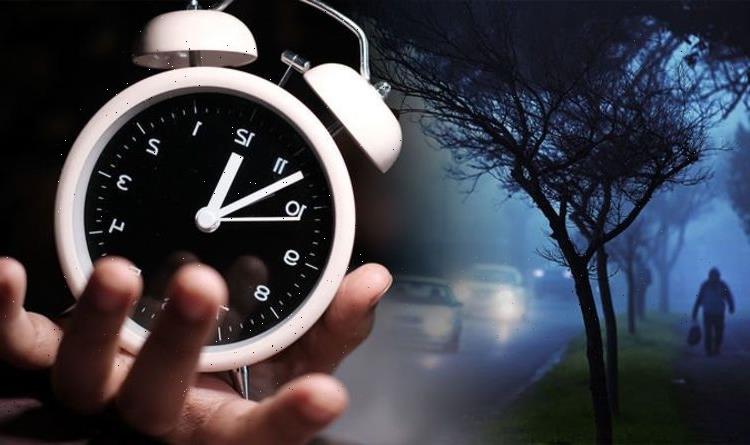Daylight saving time: Why are the clocks changed twice a year?
We use your sign-up to provide content in ways you’ve consented to and to improve our understanding of you. This may include adverts from us and 3rd parties based on our understanding. You can unsubscribe at any time. More info
During the early hours of Sunday morning, Daylight Saving Time will come to an end and the UK will revert to Greenwich Mean Time. This comes ahead of the beginning of winter, which officially commences on Tuesday, December 21, 2021.
When do the clocks go back?
Daylight Saving Time will end on Sunday 31, October 2021, reverting to Greenwich Mean Time from British Summer Time.
This means the clocks will go back at 2am on Sunday morning.
Luckily, most digital clocks and devices are set to automatically go back, which means you do not need to worry about changing them yourself.
However, any analogue clocks around the home will need to be amended.

Will it be darker in the mornings when the clocks go back?
One perk of ending Daylight Saving Time is that the mornings begin to get a little bit lighter, at least in the first few weeks following the clock change.
The clocks going back means we are entering Greenwich Mean Time (GMT).
With this comes brighter mornings, with the sun usually rising an hour earlier than on Daylight Savings Time.
DON’T MISS
Marks and Spencer issues urgent food recall for three popular items [WARNING]
When do the clocks go back? [INSIGHT]
Our Yorkshire Farm’s Amanda Owen shares fruit crumble recipe [RECIPE]
However, evenings begin to get darker sooner, with the sun setting around an hour earlier.
In parts of the UK, the sun sets in winter can be as early as 3.51pm between December 8 and 16.
As winter progresses, the sunrise may also begin to occur later.
The latest sunrise will occur at 8.06am between December 28 and January 2.

Why does the clock change happen?
The theory behind putting the clocks back is that it gives an extra hour of daylight in autumn and winter.
The clocks first changes in 1916 in the UK, a month after Germany put in place the idea.
William Willet first put forward the idea in 1907, suggesting people were wasting the early daylight of summer mornings by sleeping through them.
Daylight Saving Time was adopted during the world war as a way to boost productivity in the summer months.
Both the spring and autumn clock changes always occur on a Sunday according to an EU directive.
Get the latest three-day weather forecast where you live. Find out by adding your postcode or visit InYourArea
When do the clocks go forward again?
The clocks are due to go forward in the spring of 2022 in preparation for the brighter summer months.
Daylight Saving Time will begin in the UK at 1am on Sunday, March 27, 2022.
Source: Read Full Article
